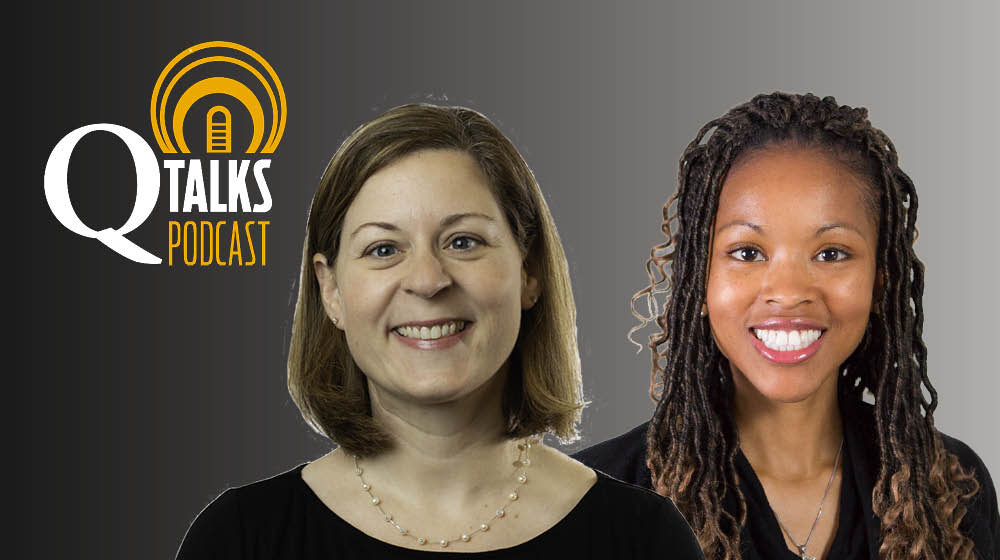Education and effort reduces implicit bias

"Everybody is doing self-reflection about their work, their company, their strategy," due to COVID-19 and movements like Black Lives Matter, says Colleen Reaney, director of the Executive and Professional Education Center. She adds that it's also the right time to reflect on diversity, equity, and inclusion.
Reaney was joined for a Q Talks Podcast episode on race and implicit bias in the workplace by Rachel Gregoire, guest lecturer for the center and founder for Fam Foolery, a social enterprise that uses game play to cultivate, convene, and celebrate culture. She is nationally recognized as an inclusion strategist within the non-profit, association, and higher education sectors.
Below are three insights from the discussion, which is part of a Q Talks Podcast miniseries on race and business. You can listen to the full podcast on Apple Podcasts or Spotify.
Implicit bias is part of us
"In short, implicit bias is when you make assumptions about who someone is, what they're capable of, their skillsets, their level of intelligence, all without knowing anything about them, and you're just going strictly off of their looks," says Gregoire.
Implicit bias is sometimes referred to as unconscious bias, as it happens unconsciously.
"I think that's important because it's not malicious," says Gregoire. "We all have them, even you good, well-intended, well-educated people, even me. Even when you're educated about them, we all still subconsciously do it because of how we're socialized."
Because the bias is unconscious, people cannot prevent them, adds Gregoire, but they can lessen the impact through awareness, consistent education, and effort.
Implicit biases find their way into the workplace in two important ways: negatively impacting those who biases are made about and impacting hiring and leadership decisions.
When making workplace decisions, it is important "to stop and ask ourselves, 'Is this the same way you would respond if this was not a person of color, if this was not a person from the LGBT community, if this was not a woman?" says Gregoire.
Self-reflection is needed
Managers may want to engage in dialogue around inclusion in the workplace but can be unsure of where to start. According to Gregoire, the best preparation for a meaningful discussion is to do a lot of self-work first.
"Before you can inter-dialogue in a meaningful way with your colleagues, step one is to have a lot of self-conversation first, study time, and reflection," says Gregoire.
By engaging in self-reflection, people can better prepare for potential roadblocks in future conversations. Gregoire also reminds us to not take on the pressure of changing the world by yourself, as one person cannot "solve the issues of inequity in our nation."
"You can only change yourself, and then you can only try to influence your own sphere of influence," adds Reaney. "It's hard to think about trying to move the whole world's agenda when you're trying to look two feet in front of yourself."
Be brave and speak up
Conversations around diversity, equity, and inclusion may be uncomfortable, but it is important to speak up nonetheless.
"How many things do we bit our tongue on just because it's so uncomfortable to get it out?" says Gregoire. "Even if it seems like you're the only person who feels or thinks the way that you do, I almost guarantee that once you speak up, you'll have some back up and people are just waiting on you to say something."
Beyond being an advocate for diversity, equity, and inclusion in the workplace, issues extend outside the workplace, too.
"Hats off to workplace initiatives that are being put in place, but there is no diversity, equity, and inclusion program, there is no law, that can shift people's minds and heart," says Gregoire. "But I think as friends, as family members, as respected colleagues, these offline conversations that happen after five. I think there is power in those conversations to make change."